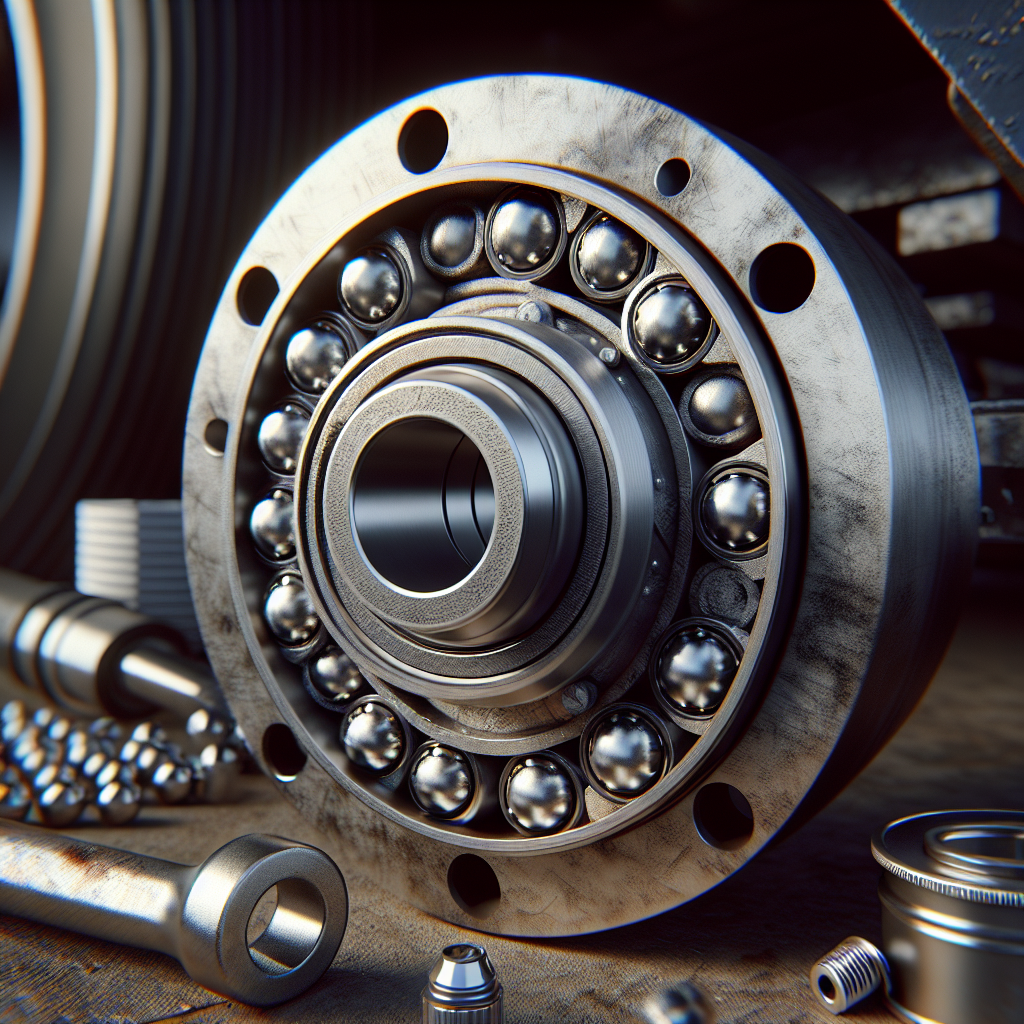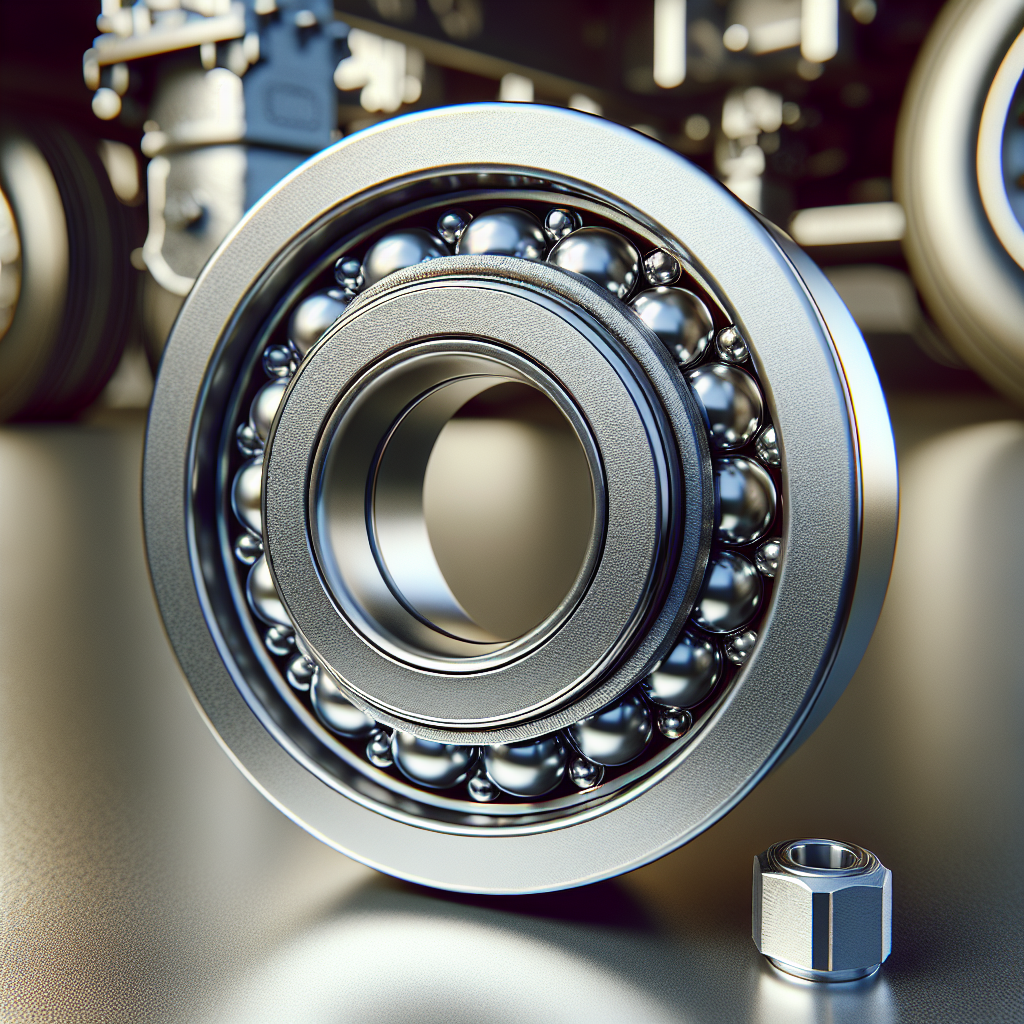

Trailer wheel bearings play a crucial role in ensuring the smooth operation and safety of your trailer. These small yet significant components allow the wheels to rotate freely while supporting the weight of the trailer. When functioning properly, wheel bearings help maintain optimal tire performance, enhance fuel efficiency, and ensure a smoother ride.
Understanding the importance of trailer wheel bearings can prevent costly repairs and dangerous breakdowns. Here are a few reasons why they are vital:
- Heat Dissipation: Bearings help dissipate heat generated during driving. If they fail, excess heat can lead to catastrophic failures.
- Load Distribution: Wheel bearings distribute the load of the trailer evenly across the wheel, preventing uneven wear and potential accidents.
- Safety Assurance: Regularly checking your wheel bearings ensures that you reduce the risk of wheel detachment, which can be life-threatening.
Moreover, faulty wheel bearings can result in additional strain on your trailer's axle and suspension system, leading to further complications. Keeping a close eye on them will enhance your overall towing experience.
To ensure your trailer's wheel bearings are in top shape, consider incorporating advanced monitoring technologies. Tow with peace of mind, knowing that trailerwatchdog is standing guard. Visit trailerwatchdog.com today!
Tools Required for Checking Trailer Wheel Bearings

To effectively check your trailer wheel bearings, having the right tools at your disposal is essential. Utilizing the appropriate equipment not only simplifies the process but also enhances accuracy, ensuring that your bearings are thoroughly inspected. Here’s a list of essential tools you will need:
- Jack: A reliable jack is necessary for lifting the trailer off the ground, allowing you to access the wheel bearings easily.
- Jack Stands: Once the trailer is lifted, jack stands provide additional safety by securing the trailer in place while you work.
- Wheel Chocks: Chocks prevent the trailer from moving unexpectedly during inspection, ensuring your safety.
- Sockets and Wrenches: Use appropriate-sized sockets and wrenches to remove the wheel hub and access the bearings.
- Grease Gun: If the bearings require lubrication, a grease gun is essential for applying grease evenly.
- Cleaning Supplies: Have some rags or shop towels handy for cleaning the bearings and wheel hub during your inspection.
- Flashlight: Good lighting is crucial for inspecting bearings closely, so a flashlight will help you spot any signs of wear or damage.
By gathering these tools before starting your inspection, you can work efficiently and effectively, ensuring that your trailer wheel bearings are in optimal condition.
Step-by-Step Guide to Inspecting Wheel Bearings

Inspecting your trailer wheel bearings may seem daunting, but following a systematic approach can make the process straightforward and efficient. Here’s a step-by-step guide to help you inspect your wheel bearings like a pro:
Protect your trailer
- Preparation: Before you begin, ensure that you have all the necessary tools ready. Make sure the trailer is on a flat, stable surface.
- Secure the Trailer: Use wheel chocks to secure the wheels that will not be lifted. This prevents any movement while you’re working.
- Lift the Trailer: Using a jack, lift the wheel off the ground. Place jack stands under the trailer for safety.
- Remove the Wheel: Use your sockets and wrenches to carefully remove the wheel from the hub, exposing the brake assembly and the wheel bearings.
- Inspect the Bearings: Check the bearings for any signs of wear, such as pitting, discoloration, or roughness. Spin the hub and listen for any unusual noises.
- Clean and Lubricate: If the bearings appear in good condition, clean them with a rag and apply fresh grease using a grease gun. If they are damaged, consider replacing them.
- Reassemble: Reattach the wheel and ensure all nuts and bolts are tightened to the manufacturer's specifications.
- Lower the Trailer: Carefully remove the jack stands and lower the trailer back to the ground.
By following these steps, you can ensure that your trailer wheel bearings are properly inspected and maintained, enhancing your safety on the road.
Signs of Worn or Damaged Wheel Bearings
Recognizing the signs of worn or damaged wheel bearings is crucial for maintaining the safety and performance of your trailer. Ignoring these signs can lead to catastrophic failures and costly repairs. Here are some key indicators to watch for:
- Unusual Noises: A grinding or humming sound while driving can indicate that your wheel bearings are failing. Pay attention to any noise that changes with speed or when turning.
- Excessive Heat: After a drive, carefully touch the wheel hub. If it feels excessively hot compared to the others, it could be a sign of a failing bearing.
- Vibration: If you notice increased vibrations in the trailer while towing, it may suggest that the wheel bearings are worn or damaged, causing instability.
- Play in the Wheel: If there is noticeable play or movement in the wheel when rocked back and forth, this could indicate that the bearings are loose or worn.
- Grease Leaks: Check for grease oozing out from the wheel hub. This could mean that the sealing is compromised, leading to contamination and bearing failure.
Being vigilant about these signs can help you catch issues early, preventing further damage and ensuring a safe towing experience.
How to Maintain Trailer Wheel Bearings Effectively

Maintaining your trailer wheel bearings is essential for ensuring optimal performance and extending the lifespan of your trailer. Here are some effective strategies to keep your wheel bearings in top condition:
- Regular Inspections: Schedule routine checks of your wheel bearings, ideally before and after long trips. Look for signs of wear, such as abnormal sounds or excessive heat, to catch issues early.
- Proper Greasing: Ensure that your wheel bearings are adequately lubricated. Use the correct type of grease recommended by the manufacturer, and replace it as necessary. A good rule of thumb is to repack the bearings every 12 months or after significant use.
- Check Seals: Inspect the seals regularly for any signs of damage or wear. Damaged seals can allow dirt and moisture to enter the bearing, leading to premature failure. Replace seals when necessary to maintain a protective barrier.
- Monitor Loads: Be mindful of the weight you are towing. Overloading can put excessive strain on wheel bearings, leading to quicker wear and tear. Always adhere to the manufacturer's load specifications.
- Alignment and Suspension Checks: Ensure that the trailer is properly aligned and the suspension is functioning as it should. Misalignment can cause uneven wear on the bearings and other components.
By following these maintenance tips, you can significantly reduce the risk of wheel bearing failure and ensure a safer towing experience.
When to Seek Professional Help for Wheel Bearings

While regular maintenance can often keep your trailer wheel bearings in good condition, there are times when seeking professional help is necessary. Understanding when to consult an expert can save you from serious safety hazards and expensive repairs in the long run. Here are situations that warrant professional attention:
- Unusual Noises: If you hear grinding, rumbling, or squeaking sounds while towing, it’s a sign that your bearings may be failing. Ignoring these sounds can lead to catastrophic failure.
- Excessive Heat: If your wheel hubs feel excessively hot to the touch after a drive, it could indicate that the bearings are not properly lubricated or are damaged. A professional can diagnose the issue accurately.
- Visible Damage: If you notice any visible signs of wear, such as cracks or discoloration on the bearings, it’s time to have them inspected by a technician.
- Frequent Adjustments: If you find yourself constantly adjusting or repacking your wheel bearings, this may indicate a deeper problem that requires professional assessment.
- After an Accident: If your trailer has been involved in any accidents or significant impacts, it’s wise to have a professional inspect the wheel bearings to ensure they are safe for continued use.
Don’t compromise your safety; if you encounter any of these issues, it’s best to consult with a professional mechanic or trailer service. Tow with peace of mind, knowing that TrailerWatchdog is standing guard. Visit trailerwatchdog.com for more information on our trailer monitoring solutions.




